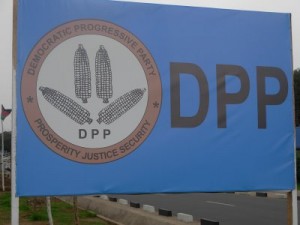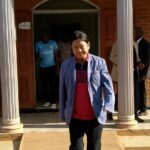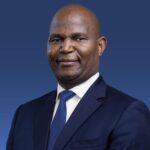DPP brainwashed people on Section 65
Published on June 5, 2012 at 5:31 PM by FACE OF MALAWI
The opposition Democratic Progressive Party (DPP) should take the blame for brainwashing Malawians into believing that Section 65 is an enemy during the time the matter took centre stage between 2004 and 2009, a political analyst has said.

In that period, the DPP which was then running a minority government presented Section 65 as an enemy over the passing of the national budget.
According to political commentator Joseph Chunga, this created unnecessary prejudice against this important piece of legislation.
Chunga, who is president for Political Scientists Association, was reacting to the divided views on whether or not the speaker of parliament should use his powers and invoke the said section to declare vacant seats of legislators deemed to have crossed the floor.
He said the then DPP-led government brought what he termed as “false choice” where people were
asked to choose between Section 65 and the budget, thereby giving Section 65 a bad image in spite of its importance.
This compelled the civil society and university students to camp at the parliament building in Lilongwe to force the opposition-dominated parliament to pass the budget.
“It wasn’t a matter of saying we should choose either the budget or Section 65; both are in the Constitution. [Unfortunately] the public was meant to believe that we don’t need this Section but the budget which is why some sections in the society feel we should leave Section 65 alone now.
“But are we going to have a Constitution which is going to be applied only when it is convenient to those holding positions? Surely, it will cease to be a Constitution because it will not be controlling any behaviour,” Chunga said.
On his part, legal commentator Justin Dzonzi said people are free to seek court intervention on the matter to compel the speaker to invoke the said Section once he is petitioned.
“Those are what we call judicial review processes. One can seek a judicial review basically requiring to order the speaker to exercise his powers by invoking Section 65 [hence declaring seats of concerned MPs vacant],” Dzonzi said.
He, however, emphasised the need to ensure that rules of natural justice are followed, saying that is also part of the Constitution.
“What would happen ordinarily would be that once the speaker has been petitioned, he would give notice to the affected MPs and require of them to defend themselves. The speaker would only make his decision once they have been heard.
“This procedure does not affect the application of the law as it is just part of the law,” Dzonzi said.
DPP spokesperson could not be reached for comment yesterday but he is on record to have said that the fact that the party felt it was a wrong legislation at that time cannot be a basis for the party not to ask the speaker to invoke it now.
Speaker of Parliament Henry Chimunthu Banda has said he will make sure that he follows the procedure to the letter once he is petitioned on the said Section.
The DPP intends to petition the speaker following the mass exodus from the party to the ruling People’s Party.


